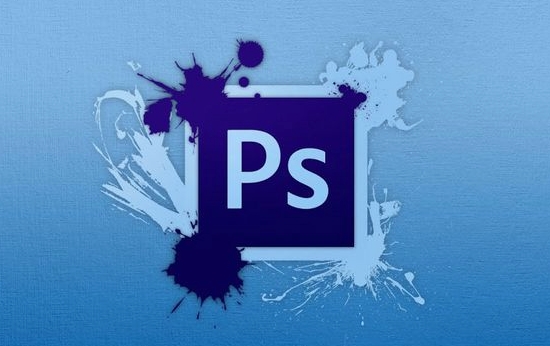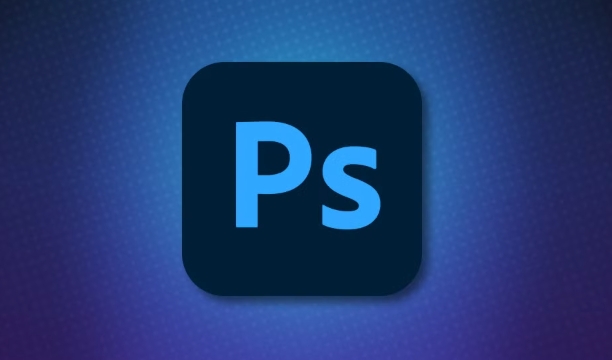Photoshop filters are not available usually result from problems with layer type, color mode, or settings. 1. The text layer, adjustment layer and vector shape layer need to be converted into smart objects or rasterized before filtering can be applied. 2. Some filters only support RGB or 8-bit channel mode, and need to be checked and changed to the appropriate mode. 3. When using smart filters, the new filter will be added to the list instead of taking effect directly. If you need to apply it directly, you should first rasterize it. 4. The existence of a selection or mask may affect the use of the filter. You can cancel the selection or copy the maskless layer attempt.

You're not alone if you've ever tried to use a filter in Photoshop and found it grayed out or unavailable. The issue usually comes down to your current document setup, layer type, or color mode — nothing's broken, but something's just not matching what the filter needs. Let's break down why that happens and how to fix it.

1. The Layer Type Doesn't Support Filters
Not all layers in Photoshop can accept filters directly. For example:

- Adjustment layers (like Levels or Curves) don't support filters because they're non-destructive edits.
- Text layers can't have filters applied directly unless you rasterize them first.
- Shape layers or vector-based layers also need to be converted before using many filters.
? What to do:
- If you're working with text or a shape, right-click the layer and choose “Convert to Smart Object” or “Rasterize Layer.” Keep in mind that rasterizing makes the layer pixel-based and no longer fully editable as vector content.
2. Color Mode or Bit Depth Limitations
Some filters only work in specific color modes. For example:

- Filters like Oil Paint or Liquify requires RGB or Grayscale mode. If you're in CMYK or Lab color, those filters will be grayed out.
- Also, certain filters may not work in 16-bit per channel mode. Photoshop sometimes restricts filters for performance or compatibility reasons.
? How to check and fix:
- Go to Image > Mode and see which color mode you're in. Switching to RGB is often the easiest solution.
- To check bit depth: go to Image > Mode > 16 Bits/Channel — if there's a checkmark, you're in 16-bit mode. Try switching to 8 Bits/Channel if needed.
3. Smart Filters Are Enabled but You're Trying to Apply Directly
If you've already applied some filters as smart filters (by converting the layer into a Smart Object), trying to apply another filter directly might not work the same way. Instead of applying directly, Photoshop adds the new filter to the Smart Filters list.
? What's happening:
- You're not doing anything wrong — the interface just changes. Instead of seeing an immediate effect, the filter shows up in the Layers panel under Smart Filters.
- This is actually a good thing because it keeps things non-destructive.
? Tip:
If you want to reorder or mask filters later, keep using Smart Objects. But if you really need to apply a filter directly, you'll need to rasterize the layer first.
4. Selections or Masks Are Preventing Filter Use (or Vice Versa)
Sometimes, even if everything seems set up right, a selection or mask might affect how a filter appears or whether it can be used.
- Some filters won't run if you have a selection active that doesn't match the layer bounds.
- Other times, a corrupted mask or alpha channel can interfere.
? Quick fixes:
- Deselect everything with
Ctrl D(Windows) orCmd D(Mac) before applying the filter. - If you suspect a mask is causing issues, duplicate the layer without the mask and try again.
Filter availability in Photoshop isn't random — it's based on how your document and layers are set up. Most of the time, a few quick adjustments will get you back to filtering like normal. Just pay attention to layer types, color mode, and whether you're working non-destructively or not.
Basically that's it.
The above is the detailed content of Why can't I use some filters in Photoshop. For more information, please follow other related articles on the PHP Chinese website!

Hot AI Tools

Undress AI Tool
Undress images for free

Undresser.AI Undress
AI-powered app for creating realistic nude photos

AI Clothes Remover
Online AI tool for removing clothes from photos.

Clothoff.io
AI clothes remover

Video Face Swap
Swap faces in any video effortlessly with our completely free AI face swap tool!

Hot Article

Hot Tools

Notepad++7.3.1
Easy-to-use and free code editor

SublimeText3 Chinese version
Chinese version, very easy to use

Zend Studio 13.0.1
Powerful PHP integrated development environment

Dreamweaver CS6
Visual web development tools

SublimeText3 Mac version
God-level code editing software (SublimeText3)
 C++ Image Processing Practice Guide: Implementing Image Special Effects and Filters
Nov 27, 2023 am 11:40 AM
C++ Image Processing Practice Guide: Implementing Image Special Effects and Filters
Nov 27, 2023 am 11:40 AM
In the fields of computer science and image processing, C++ has always been one of the most commonly used programming languages. Image processing is one of the important subfields of computer vision, including image analysis, processing and recognition. This article will introduce some basic concepts and techniques in C++ image processing, and provide some sample codes for implementing image special effects and filters to help readers better understand and practice C++ image processing. 1. Basics of C++ image processing 1.1 Commonly used image file formats In image processing, we usually need to use various image file formats, including
 Find another way! See how to use CSS filters to create rounded corners and wavy effects
Oct 18, 2022 pm 08:21 PM
Find another way! See how to use CSS filters to create rounded corners and wavy effects
Oct 18, 2022 pm 08:21 PM
This article will take you through a different approach and talk about how to use CSS filters to create rounded corners, and how to use rounded corners to achieve a wave effect. I hope it will be helpful to you!
 Let's talk about how to use CSS filters to achieve rounded corners and wave effects.
Jul 28, 2022 pm 07:42 PM
Let's talk about how to use CSS filters to achieve rounded corners and wave effects.
Jul 28, 2022 pm 07:42 PM
How to use CSS to achieve rounded corners and wave effects? The following article will show you how to skillfully use CSS filters to create rounded corners and wave effects. I hope it will be helpful to you!
 Cleverly use CSS3 filters to create text flash switching animation effects!
Jul 20, 2022 am 10:55 AM
Cleverly use CSS3 filters to create text flash switching animation effects!
Jul 20, 2022 am 10:55 AM
This article will show you how to use CSS3 filters to achieve a high-end text flash switching animation effect. I hope it will be helpful to you!
 How to easily use color filters in Windows 11 for color-blind users
Sep 26, 2023 pm 08:21 PM
How to easily use color filters in Windows 11 for color-blind users
Sep 26, 2023 pm 08:21 PM
Windows 11 has many wonders that not all users discover. One thing you may not know is that you can make your desktop more unique using simple shortcuts to color filters in Windows 11 – which is very handy for color-blind users. Accessibility features on Windows 11 are important because they allow people with disabilities to use the operating system more easily. These features can help people who are blind or have low vision, are deaf or hard of hearing, have limited mobility, or have cognitive impairments. This little trick has been around in Windows for a long time, but recently it was discovered on X (fkaTwitter) and people were surprised. Methods as below. How to use color filters in Windows 11 to make your
 How to choose a Clip-on filter
Feb 28, 2024 pm 01:10 PM
How to choose a Clip-on filter
Feb 28, 2024 pm 01:10 PM
Clipshot software provides a series of powerful functions in the field of video editing to meet users' needs for all-round video processing. The software has built-in many popular and rich functions and material libraries, allowing users to easily create personalized video works. Users can use this software to easily add filters to enhance the visual appeal of their videos. However, many users still don’t know how to add filters, so players who want to know more about it can follow this article to learn more about it. How to add filters to Clip Shot? 1. Enter the Clip Recording screen and select the "Color Five Star" tool. 2. Open more options and select the "Required Filter Effect" option in the Select Filter tab. 3. Then select "Close" in the option bar. "Button 4, and then add filters to the camera image
 Develop image filter effects based on JavaScript
Aug 09, 2023 pm 11:46 PM
Develop image filter effects based on JavaScript
Aug 09, 2023 pm 11:46 PM
Summary of developing image filter effects based on JavaScript: This article introduces how to use JavaScript to develop image filter effects. By using the Canvas element and related APIs, we can achieve common picture filter effects, such as grayscale, blur, contrast adjustment, etc. This article will provide detailed code examples and implementation processes for each filter effect to help readers quickly get started developing image filter effects. 1. Introduction In web development, we often encounter the need to process and beautify images.
 How to add filter effects to images using Python
Aug 18, 2023 pm 01:09 PM
How to add filter effects to images using Python
Aug 18, 2023 pm 01:09 PM
How to add filter effects to pictures using Python In this digital age, picture processing has become an integral part of our daily lives. If you are someone who is interested in image processing, then you will definitely be interested in how to add filter effects to images. This article will introduce how to use the Python programming language to implement image filter effects and provide relevant code examples. First, we need to install Python’s image processing library PIL (PythonImagingLibrary






